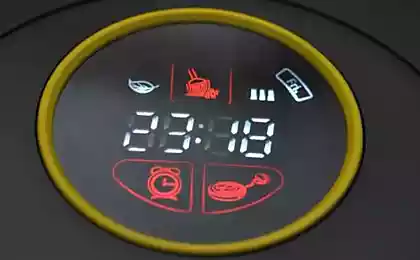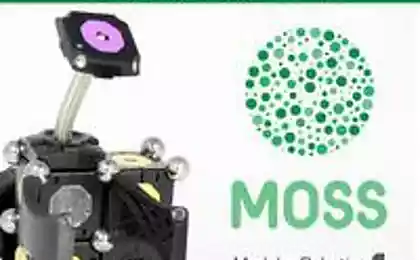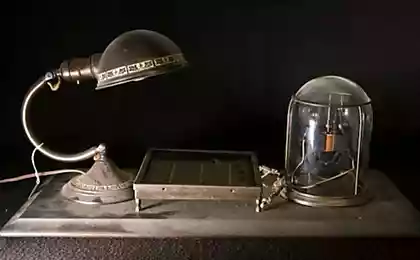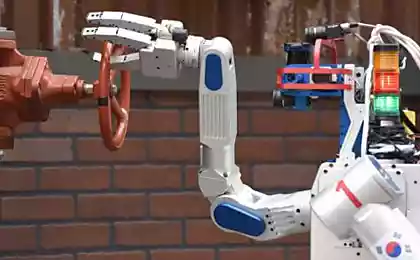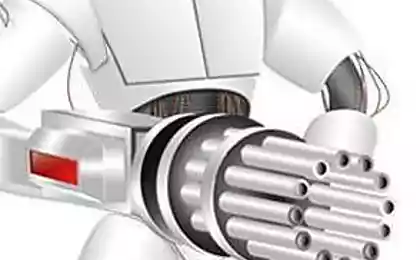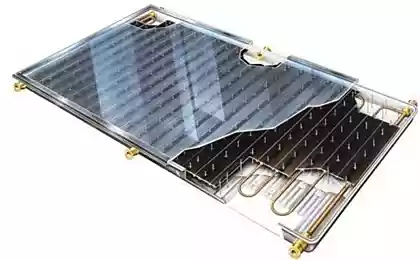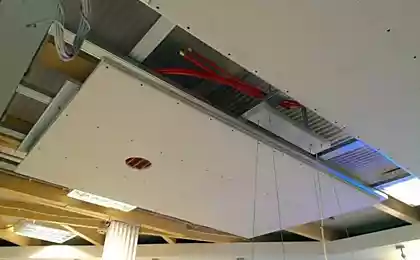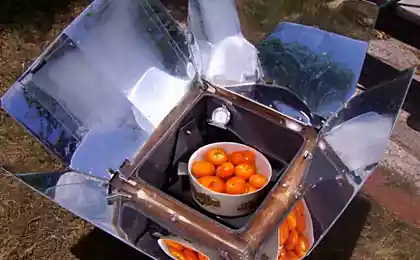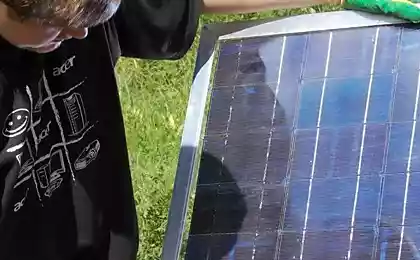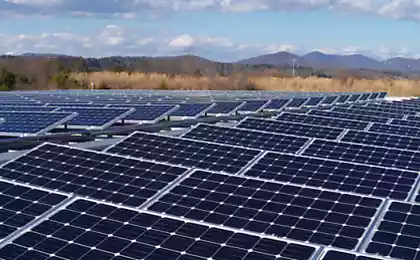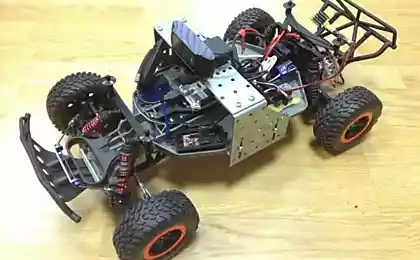218
The designer from the Netherlands has created a robot on a solar battery that cleans solar panels
Like the windows in our home, which should always be transparent, rooftop solar panels also need regular cleaning and polishing to ensure maximum efficiency. However, existing methods of cleaning solar panels are either too time-consuming or do not give the desired result. But recently, a design engineer from the Netherlands proposed a new solution to this problem by developing a solar-powered Scrobby autonomous robot that ensures the cleanliness and transparency of household solar panels.
Scrobby is designed to wash and clean solar panels at an angle of up to 75 degrees. According to the developer, one robot is able to clean the panel up to 10 m x 20 m (this restriction is only due to the length of the cable, which is necessary for security purposes). The robot is controlled using an application on a smartphone or tablet via a Bluetooth 4.0 connection, in the same application it sends information about the work done.
The developer claims that Scrobby is a truly independent and self-contained device, because it does not require an external power source or water to wash and clean the panels. The robot is equipped with a solar panel to charge its battery, and the docking station has a rainwater collector – the first precipitation will be enough for the robot to start working. In addition, it is able to independently map the environment to determine the size of the panel and its location.
The Scrobby robot is set up through an app to clean up three solar panels a year. But if necessary, for example, when operating in dusty areas, the mode of use of the robot can be changed.
Unlike other similar, but designed for commercial applications robotic machines, such as Eccopia E4, operating in the Israeli desert at a solar power plant, the Scrobby robot is recommended for use in household conditions.
Currently, the designer has posted his project on the Kickstarter website. Interested homeowners can order a Scrobby mounting kit for $348. Deliveries of robot kits are expected to begin in February 2015. In May 2015, a launch kit of 10 robots will be available at a retail price of $3,092. By the way, the hulls of the robots will only be white in order to reduce the thermal load on the internal electronic components.
Source: www.cheburek.net
Scrobby is designed to wash and clean solar panels at an angle of up to 75 degrees. According to the developer, one robot is able to clean the panel up to 10 m x 20 m (this restriction is only due to the length of the cable, which is necessary for security purposes). The robot is controlled using an application on a smartphone or tablet via a Bluetooth 4.0 connection, in the same application it sends information about the work done.
The developer claims that Scrobby is a truly independent and self-contained device, because it does not require an external power source or water to wash and clean the panels. The robot is equipped with a solar panel to charge its battery, and the docking station has a rainwater collector – the first precipitation will be enough for the robot to start working. In addition, it is able to independently map the environment to determine the size of the panel and its location.
The Scrobby robot is set up through an app to clean up three solar panels a year. But if necessary, for example, when operating in dusty areas, the mode of use of the robot can be changed.
Unlike other similar, but designed for commercial applications robotic machines, such as Eccopia E4, operating in the Israeli desert at a solar power plant, the Scrobby robot is recommended for use in household conditions.
Currently, the designer has posted his project on the Kickstarter website. Interested homeowners can order a Scrobby mounting kit for $348. Deliveries of robot kits are expected to begin in February 2015. In May 2015, a launch kit of 10 robots will be available at a retail price of $3,092. By the way, the hulls of the robots will only be white in order to reduce the thermal load on the internal electronic components.
Source: www.cheburek.net
Sculptures and 3D paintings inspired by trip to Africa
In Beijing held its first race in the world of electric car racing
